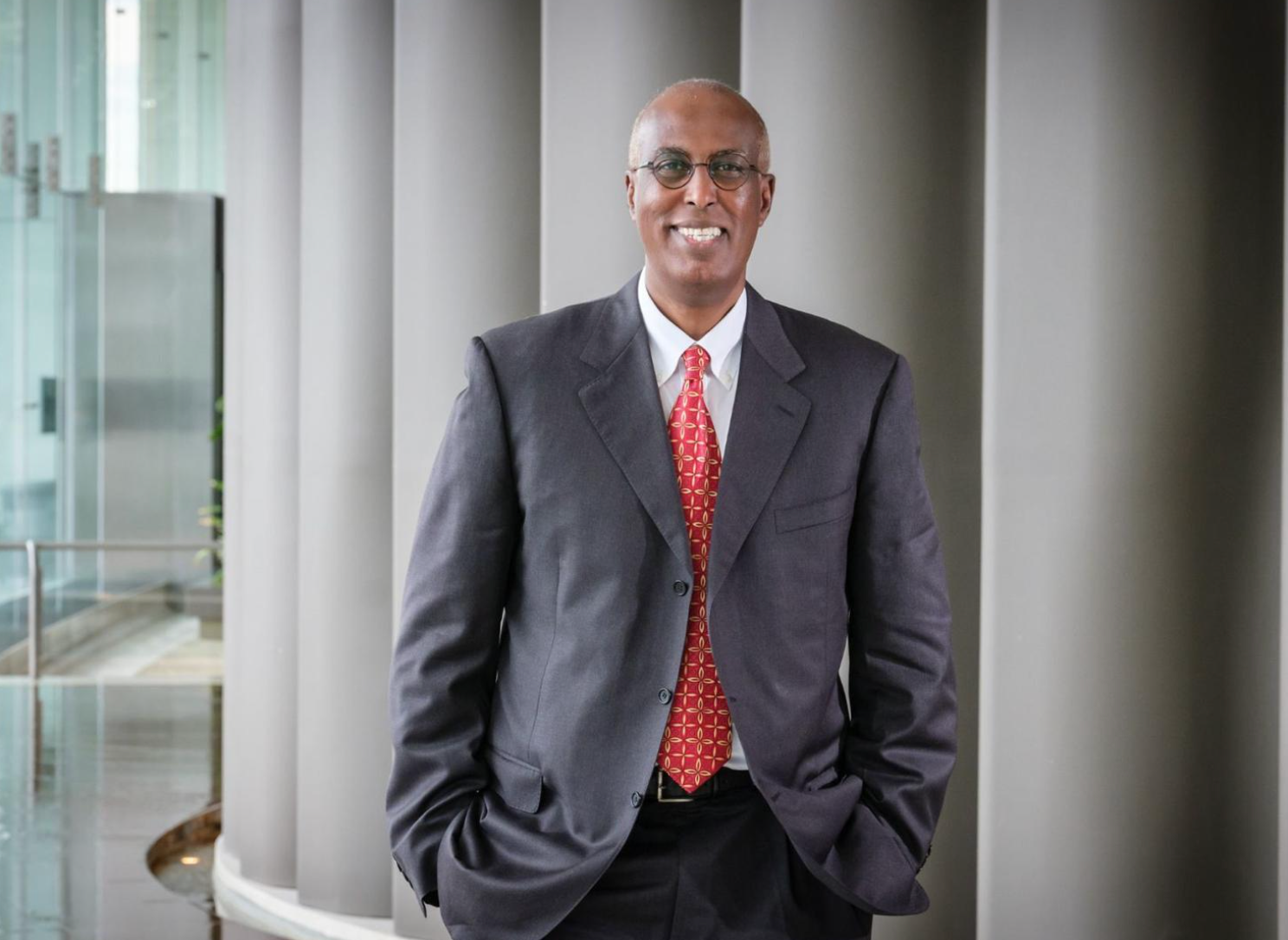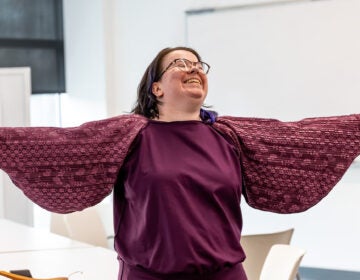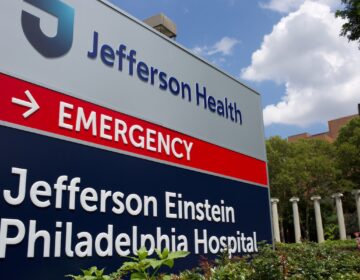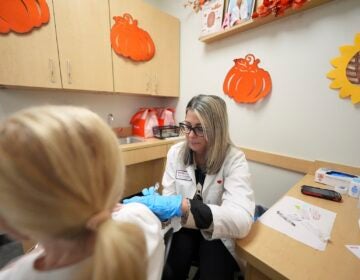Thomas Jefferson University launches new degree programs to increase the number of respiratory therapists in Philly
The U.S. Bureau of Labor Statistics projects that respiratory therapy jobs will grow 14% over the next decade.
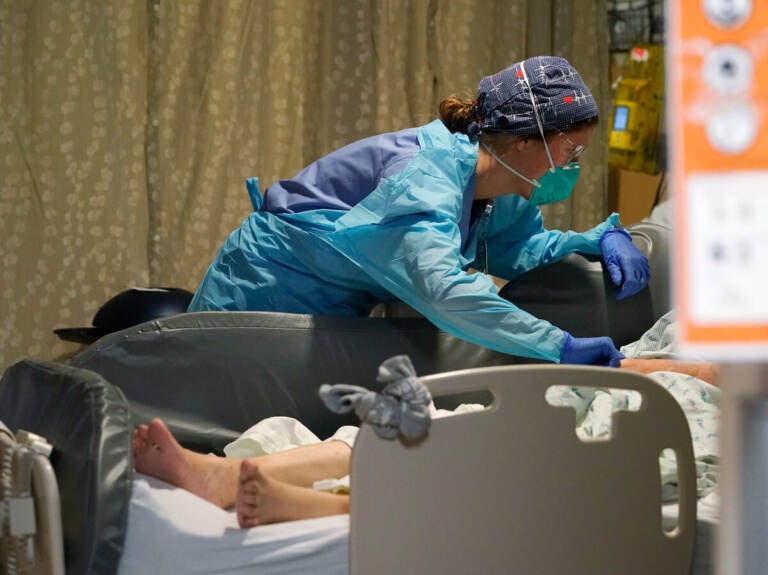
File - Registered nurse Estella Wilmarth tends to a patient in the acute care unit of Harborview Medical Center, Friday, Jan. 14, 2022, in Seattle. (AP Photo/Elaine Thompson)
In the first two years of COVID-19, many people were hospitalized with severe breathing issues and put on ventilators.
Respiratory therapists were in high demand at the bedside of these patients, a demand that Philadelphia health providers say remains high even after peak waves of the pandemic.
But Michael Dryer, dean of the College of Health Professionals at Thomas Jefferson University, said there weren’t enough of these professionals to fully meet the need then, and there aren’t enough now.
At the height of COVID, he said Jefferson’s health system was short about 200 respiratory therapists – a 40% vacancy rate for those positions.
“We looked at all the [student] programs that are available within the immediate metro area, and if we hired everybody who graduated from every program, we still couldn’t fill our need,” Dryer said. “We realized that if we were going to be able to meet the needs of the community and our patients, we had to build something.”
Jefferson partnered with National Jewish Health, based in Denver, to launch two new degree programs this fall for respiratory therapy. The programs involve virtual and in-person learning and are open to students in both Philadelphia and Denver.
“We’re providing the best clinical experience and also providing a pathway for students to enter employment as respiratory therapists to meet the needs of the entire health care community, not just Jefferson,” Dryer said.
One bachelor’s degree program is designed for students newly entering the field of respiratory therapy and can be completed in about two years.
The other degree program is geared toward respiratory therapists who may already be working in the field with associate degrees and other certifications, and want to pursue bachelor’s degrees.
Jerin Juby, program director and assistant professor of respiratory therapy at Jefferson’s College of Health Professions, said there’s an ongoing need for COVID-related care, including for people living with types of long COVID.
But he said respiratory therapists are also needed to help treat infants, children, and adults with asthma and many other common conditions.
“We spend our time in critical care units with lung and heart transplant patients, in medical intensive care units with patients needing ventilators,” Juby said, “to outpatient services like pulmonary rehabilitation.”
The U.S. Bureau of Labor Statistics projects that respiratory therapy jobs will grow 14% nationally in the next decade.

Get daily updates from WHYY News!
WHYY is your source for fact-based, in-depth journalism and information. As a nonprofit organization, we rely on financial support from readers like you. Please give today.


